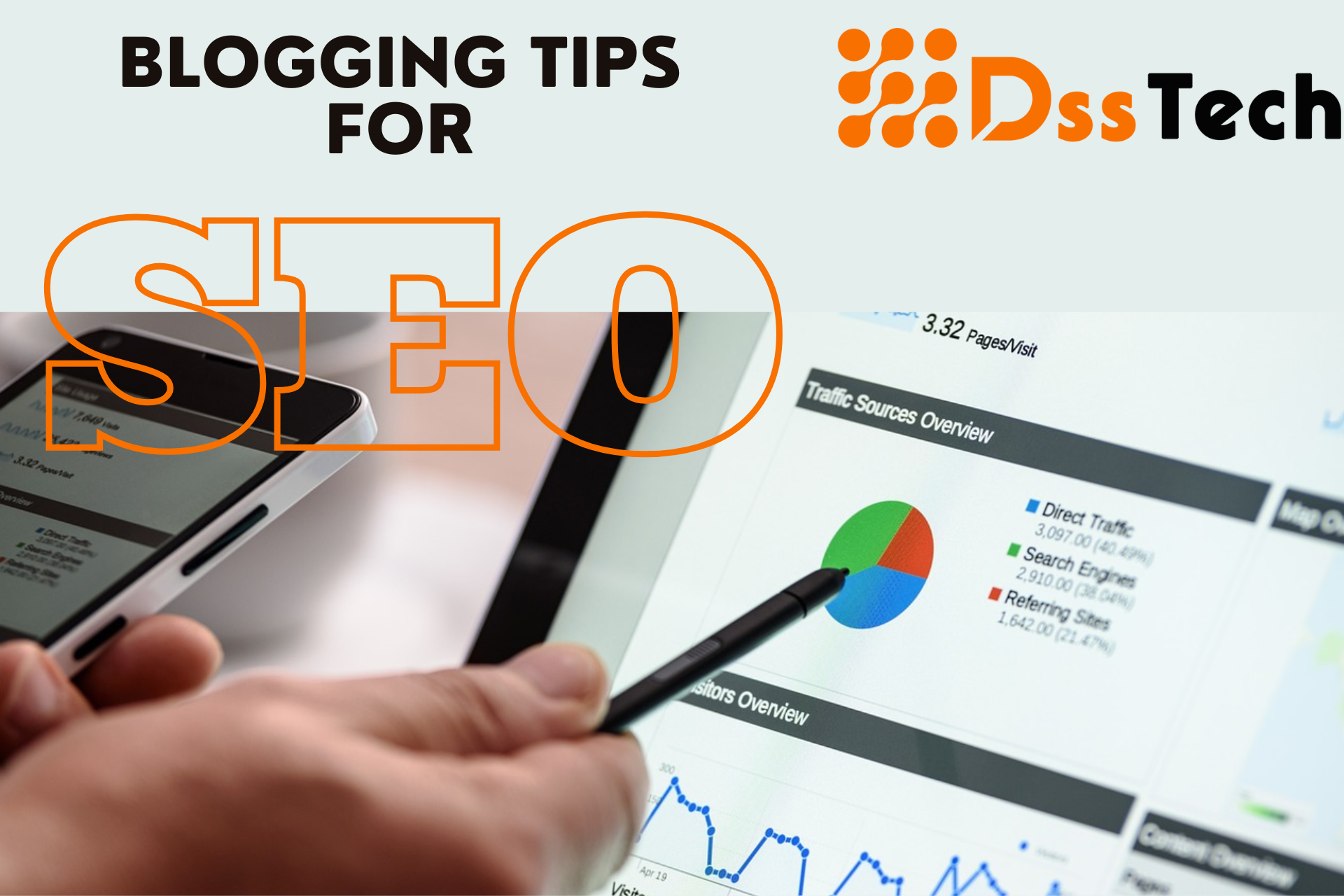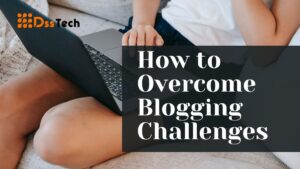In the ever-evolving digital landscape, understanding and applying blogging tips for SEO is crucial for bloggers and content creators alike. Creating valuable content is only half the battle; the other half lies in ensuring that your content reaches its intended audience. In this comprehensive guide, we will delve into the world of SEO strategies for bloggers, exploring effective blogging tips for SEO that will propel your content to new heights of search engine visibility and user engagement.
Table of Contents
ToggleUnderstanding the Basics of SEO
Before diving into specific blogging tips for SEO, it’s essential to grasp the fundamentals. SEO, also known as Search Engine Optimization, involves improving your website’s visibility on search engines such as Google. This is achieved through various techniques and strategies, all aimed at improving your website’s ranking in search engine results pages (SERPs). By optimizing your blog for SEO, you increase the likelihood of your content being discovered by users actively seeking information related to your niche.
Optimizing Your Blog for SEO
To begin your journey towards SEO success, you must optimize your blog effectively. Commence by conducting keyword research to pinpoint pertinent and high-traffic keywords. These keywords, including our main keyword, “blogging tips for SEO,” should be strategically placed throughout your content, in titles, headings, and naturally within the body of your blog posts. Utilizing tools like Google’s Keyword Planner can provide invaluable insights into search volumes and keyword competitiveness.
Crafting Engaging Content with SEO in Mind
One of the most vital blogging tips for SEO is to create high-quality, engaging content that addresses the needs and interests of your target audience. Google rewards fresh, informative, and well-structured content. Guarantee that your blog posts are thoroughly researched and deliver substantial value to your readers. Use subheadings to break down your content into easily digestible sections, enhancing both readability and SEO-friendliness.
Leveraging SEO Techniques for Better Rankings
Incorporating effective SEO techniques into your blogging strategy is crucial for achieving higher search engine rankings. Techniques such as internal linking, external linking to authoritative sources, and optimizing images with descriptive alt tags can significantly boost your blog’s SEO performance. Remember to focus on providing an exceptional user experience by improving page load times and ensuring mobile-friendliness.
Staying Updated with SEO Best Practices
SEO is a dynamic field, and algorithms change frequently. To maintain your blog’s SEO success, it’s essential to stay updated with the latest best practices. Regularly monitor your blog’s performance using tools like Google Analytics and Search Console. Examine user behavior and adapt your strategy in response to their actions. Additionally, keep an eye on emerging SEO trends and algorithm updates to adapt and evolve your blogging techniques.
Enhancing SEO Success with Blogging
The relationship between blogging and SEO is symbiotic, and understanding blogging tips for SEO is essential for bloggers looking to maximize their online presence. Blogging not only provides a platform to implement SEO strategies but also fuels your SEO efforts. Consistent and well-structured blogging can lead to a steady stream of fresh content, a factor that search engines like Google highly value. When you publish regular blog posts, you signal to search engines that your website is active and relevant, increasing your chances of ranking higher in SERPs. Therefore, one of the most effective SEO strategies for bloggers is to maintain a consistent publishing schedule, offering readers valuable insights, solutions, and information.
Engaging with Your Audience
Effective SEO isn’t just about pleasing search engine algorithms; it’s also about engaging with your audience. Encourage comments and discussions on your blog posts, and be sure to respond to your readers. This not only fosters a sense of community but also signals to search engines that your content is valuable and generates user interaction. Additionally, social media can be a powerful tool for promoting your blog and engaging with your audience, driving more traffic to your site and enhancing your SEO efforts.
Blogging Tips for SEO: Local SEO for Bloggers
For bloggers targeting a specific geographical audience, local SEO is a valuable strategy. Incorporate location-based keywords into your content to attract local readers. Register your blog with Google My Business and other local directories to improve your visibility in local searches. Encourage reviews and ratings from satisfied customers or readers, as positive feedback can significantly boost your local SEO rankings.
Harnessing the Power of Long-Tail Keywords
In the realm of blogging for SEO, long-tail keywords deserve a special mention. These are extended and highly specific keyword phrases designed to cater specifically to niche audiences. Incorporating long-tail keywords into your content can be a game-changer. Not only are these keywords less competitive, making it easier to rank for them, but they also attract highly targeted traffic. For instance, if your blog is about gardening, targeting a long-tail keyword like “best organic fertilizers for tomato plants” not only narrows down your competition but also draws readers genuinely interested in your topic.
The Significance of On-Page SEO Elements
Beyond keyword usage, on-page SEO elements play a pivotal role in optimizing your blog posts. Make sure your titles, meta descriptions, and headers contain your target keywords. Furthermore, enhance your images by incorporating informative alt text. These on-page optimizations provide search engines with essential information about your content, increasing the likelihood of ranking higher in search results.
Mobile Optimization for SEO Success
With the rise in mobile device usage, optimizing your blog for mobile is no longer an option—it’s a necessity. In their rankings, search engines give preference to websites that are mobile-friendly. Make certain that your blog incorporates a responsive design that seamlessly adjusts to different screen sizes.. Check page load times on mobile devices, as slow-loading pages can negatively impact your SEO rankings. A mobile-optimized blog not only enhances user experience but also boosts your chances of appearing in mobile search results.
The Role of Backlinks in SEO
Backlinks, also known as inbound links, represent the connections from external websites to your blog. These play a vital role in SEO. High-quality, relevant backlinks are seen as endorsements of your content’s credibility and authority. While you cannot directly control who links to your blog, you can actively engage in outreach and content promotion to earn backlinks from authoritative sources within your niche. Crafting exceptional content and promoting it through social media, email marketing, and networking can help you garner valuable backlinks over time.
Content-Length and SEO Rankings
In the quest for SEO success, the length of your blog posts can also impact your rankings. While there’s no one-size-fits-all answer, longer content often performs better in search results. It allows you to cover topics in greater depth and provides more opportunities to incorporate relevant keywords and phrases naturally. However, the key is to maintain quality throughout. Don’t pad your content with fluff; ensure every word adds value and relevance to your readers.
Monitoring and Tracking Progress
As you implement these blogging tips for SEO, it’s crucial to have a system in place to monitor and track your progress. Use tools like Google Analytics to gain insights into your website’s performance. You can assess which blog posts are driving the most traffic, where your visitors are coming from, and how long they are staying on your site. This data is invaluable for refining your content strategy and focusing on what works best for your audience.
Quality Content Over Quantity
While consistency in publishing blog posts is essential, never compromise on the quality of your content for the sake of quantity. Producing high-quality, informative, and engaging content should always be your top priority. Search engines reward blogs that provide valuable information, and readers are more likely to share and return to your blog if they find your content genuinely helpful.
Engaging with Your Audience
Engagement goes beyond just responding to comments. Actively seek feedback from your readers, ask questions in your blog posts, and encourage social sharing. Interacting with your audience not only nurtures a sense of community but also amplifies the exposure of your content. When readers share your posts on social media or leave comments, it signals to search engines that your content is relevant and worth promoting.
Avoid Common SEO Pitfalls
In your pursuit of SEO success, be mindful of common pitfalls that can hinder your progress. One such pitfall is keyword stuffing, where you overuse keywords unnaturally in your content. This can lead to a poor user experience and potentially result in search engine penalties. Another mistake to avoid is neglecting the importance of page speed and mobile-friendliness. Slow-loading pages or websites that don’t function well on mobile devices can harm your SEO rankings.
Long-Term SEO Strategy
Building a successful blog with SEO is a long-term endeavor. Don’t expect instant results, as SEO takes time to show its full impact. It’s essential to be patient and persistent in your efforts. Consistently apply these blogging tips for SEO, adapt to changing algorithms, and keep refining your strategy based on data and user feedback. Over time, your blog will gain authority and trust in the eyes of search engines, resulting in improved rankings and increased organic traffic.
The Value of User Intent
Understanding user intent is a critical aspect of effective blogging for SEO. Beyond targeting specific keywords, it’s essential to discern what users are looking for when they enter those keywords into search engines. Do their intentions revolve around finding information, making a purchase, or resolving a specific issue? Tailoring your content to align with user intent not only improves your SEO but also enhances the user experience. Google’s algorithms are increasingly sophisticated at recognizing and rewarding content that meets user needs.
Content Diversification and SEO
While written content is the backbone of many blogs, diversifying your content can have a positive impact on your SEO efforts. Consider incorporating other media types such as videos, infographics, podcasts, and interactive elements like quizzes or calculators. This not only makes your blog more engaging but also opens up opportunities for ranking in different search results, such as video or image searches. Diversifying your content portfolio can attract a broader audience and boost your overall SEO performance.
Local SEO for Bloggers
When considering blogging tips for SEO, especially if your blog caters to a specific local audience or has a physical presence, optimizing for local SEO becomes paramount. To effectively optimize for local search, create content that is relevant to your location or the areas you serve. Ensure that your contact information, including your address, is not only accurate but also consistent across all online platforms. Encourage your customers or readers to leave reviews, particularly on platforms like Google My Business, as positive reviews can significantly boost your local SEO efforts. By implementing these local SEO strategies, you increase the chances of your blog appearing in local search results, making it easier for potential customers or local readers to discover and engage with your content.
Ethical SEO Practices
In the world of SEO, ethical practices are essential for long-term success. Avoid engaging in tactics like link schemes, keyword stuffing, or cloaking, which can result in penalties from search engines. Instead, focus on providing genuine value to your audience and adhering to best practices. Ethical SEO not only ensures that you stay in the good graces of search engines but also builds trust and credibility with your readers, leading to sustained SEO success.
The Role of Voice Search in SEO
In the ever-evolving landscape of SEO, blogging tips for SEO must adapt to emerging technologies, and one such development is the rise of voice search. With the widespread use of voice-activated devices and virtual assistants like Siri and Alexa, optimizing your blog for voice search is becoming increasingly crucial. When you work on SEO strategies for your blog, it’s essential to consider how users might phrase their queries when speaking, as opposed to typing. Voice search queries are often more conversational and longer in nature. To capture this growing segment of traffic, incorporating natural language phrases and conversational content into your blog can be highly beneficial. It aligns your content with the way people are searching through voice-activated devices, ultimately enhancing your blog’s SEO performance.
Structured Data Markup and SEO
Structured data markup, also known as schema markup, is a powerful tool for enhancing your blog’s SEO. It provides search engines with additional information about your content, allowing them to display rich snippets in search results. Rich snippets can include star ratings, prices, and other relevant information that can make your blog stand out in search results and drive more organic clicks.
Social Signals and SEO
Although the precise connection between social signals and SEO rankings is still a subject of discussion among experts, it’s worth noting that blogging tips for SEO can extend to your social media strategy. Social media may not have a direct impact on search engine rankings, but there’s evidence suggesting that it can indirectly influence your blog’s SEO performance. When your blog content is shared on social platforms and garners engagement, it can lead to increased visibility, more website visitors, and the potential for earning valuable backlinks. Furthermore, maintaining active and engaging social media profiles can contribute to a stronger online brand presence, which can indirectly benefit your broader SEO efforts.
The Importance of Local Citations
While blogging tips for SEO often focus on broader strategies, it’s important not to overlook the significance of local SEO if your blog caters to a specific geographic area. To enhance your blog’s local visibility, maintaining accurate and consistent local citations is crucial. Local citations refer to mentions of your blog on various online platforms like directories, review sites, and social media profiles, especially when they include your business name, address, and phone number (NAP) information consistently. These uniform citations play a pivotal role in improving your blog’s local SEO, ensuring that it appears prominently in online searches for local users.
The Role of User Experience Metrics
User experience metrics, such as bounce rate, time on page, and click-through rate, are crucial for SEO. Metrics like bounce rate, time on page, and click-through rate are factors that search engines such as Google consider when determining the rankings of websites. A high bounce rate, for example, may indicate that visitors are not finding what they expected on your blog, potentially leading to a drop in rankings. Improving the user experience on your blog by providing valuable content, intuitive navigation, and fast-loading pages can positively impact your SEO.
The Future of Blogging and SEO
In the ever-evolving landscape of blogging and SEO, it’s crucial to stay up-to-date with the latest trends and technologies. Blogging tips for SEO encompass not only creating high-quality content but also adapting to changes in search engine algorithms. Emerging technologies like artificial intelligence and machine learning are poised to play a significant role in the future of SEO, impacting how search engines rank and prioritize content. To ensure long-term success, stay adaptable and be prepared to adjust your blogging strategies to align with these ever-changing algorithms and user preferences. By staying informed and proactive, you can position your blog as a reliable and authoritative source in the dynamic world of SEO.
The Value of Content Promotion
When it comes to Blogging Tips for SEO, creating outstanding content is only one part of the equation. Effective content promotion is equally critical. To maximize the impact of your blog, promote your posts across various channels, including social media, email newsletters, and online communities related to your niche. Collaborate with influencers and other bloggers to expand your reach. The more your content is shared and discussed, the more likely it is to gain traction in search engine results.
User-Generated Content and SEO
User-generated content, such as reviews, comments, and guest posts, can be a valuable asset to your blog’s SEO strategy. Reviews can boost your local SEO efforts, while comments signal to search engines that your content is engaging and generating discussion. Guest posts from reputable sources not only provide fresh perspectives but also create opportunities for backlinks, which can enhance your blog’s authority and rankings.
The Evolving Role of Video in SEO
Video content is increasingly becoming a dominant force in online marketing and SEO. Platforms like YouTube are search engines in their own right, and Google often displays video results in regular search results. Consider incorporating video content into your blog posts or creating a dedicated YouTube channel to complement your blog. Optimizing video titles, descriptions, and tags can improve your visibility on both YouTube and Google, expanding your blog’s reach and authority in the world of SEO.
Conclusion: SEO Success through Blogging
In conclusion, blogging tips for SEO are integral to achieving quick and sustainable results in the competitive online landscape. By understanding SEO fundamentals, optimizing your blog effectively, crafting engaging content, leveraging SEO techniques, and staying updated with best practices, you can unlock the potential of your blog and elevate its search engine visibility. Embrace these strategies, and watch your blog climb the ranks, connecting with a broader audience and achieving SEO success that stands the test of time.









